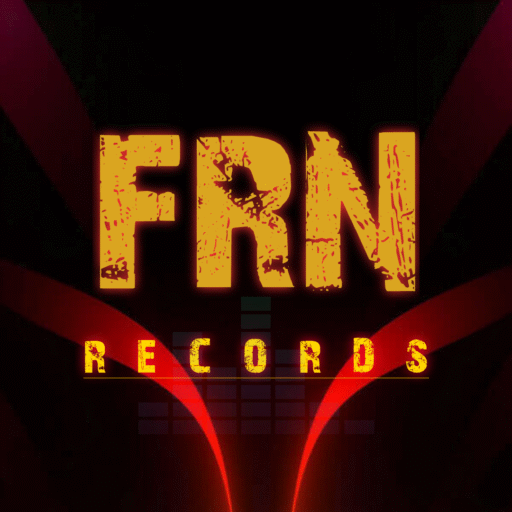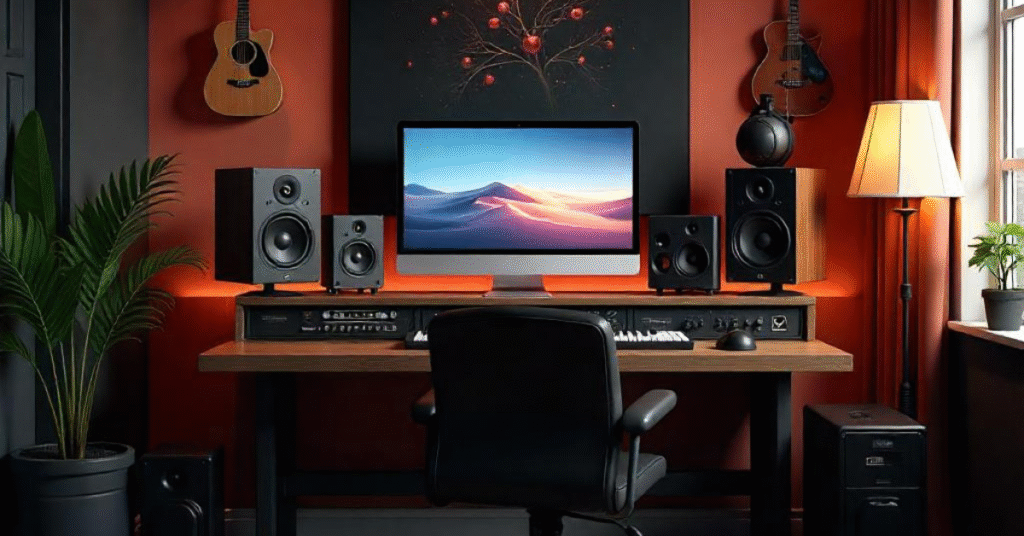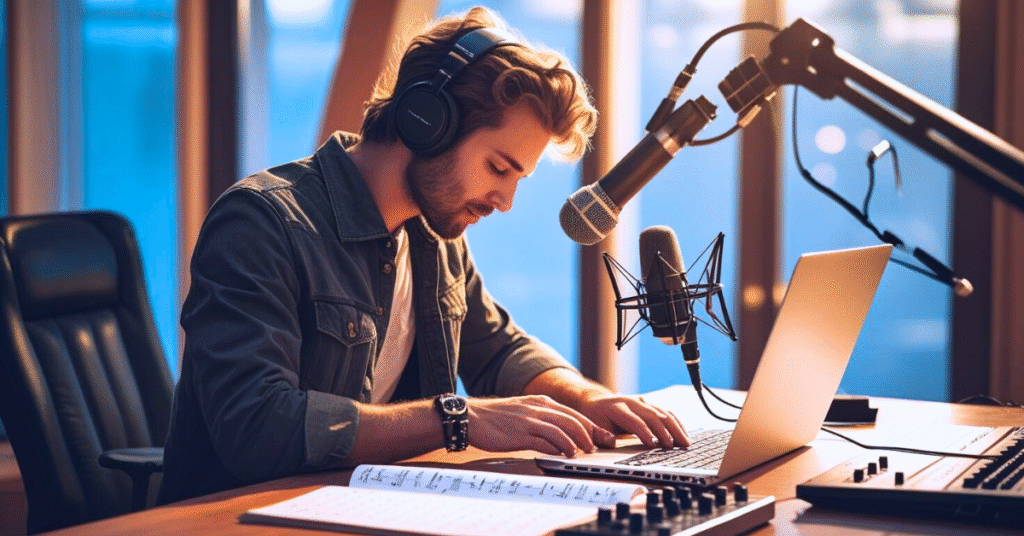AI in Music Production: Human vs AI in music
📥 FREE “Guitar Theory Guide” PDF.
If you’ve been following music trends lately, you’ve probably noticed how often people bring up AI in music production. Some get excited, some get worried, and many are still trying to figure out what it means for musicians. Let’s clear one thing right away—AI is not here to replace artists. It’s more like a tool, or even better, a friendly assistant in the studio.

Why Musicians Shouldn’t Fear AI
Every musician has heard the same question: “Will AI replace us one day?” Honestly, no. Music isn’t just about notes and rhythms—it’s about feeling. A computer can create a melody, sure, but can it capture the pain of a heartbreak song or the joy of dancing with friends at a festival? Not really.
What AI does well is handling boring, repetitive tasks. It can balance levels, suggest a chord progression, or clean up a mix. This gives you more time to focus on what matters—your ideas and your emotions.
How Artists Are Already Using AI
Let’s be real, many artists are already experimenting with AI tools. Some common uses include:
- Mixing help: Plugins like iZotope Neutron can suggest EQ and compression settings.
- Songwriting ideas: Platforms such as AIVA or Amper Music generate quick melodies that spark inspiration.
- Sound design: AI can create wild textures that might take hours to build manually.
Notice something? None of these tools writes the whole song for you. They simply provide a starting point. The final touch always comes from you.
Why the Human Touch Still Wins
Think about your favorite song. Do you love it because of its perfect mix, or because of how it made you feel the first time you heard it? That’s the difference AI can’t bridge.
A jazz musician improvising on stage, or a singer pouring raw emotion into a microphone—that’s human. That’s why AI works best as a partner, not a replacement. It’s like having an extra set of hands in the studio, but the brain and the heart are still yours.
The Road Ahead
Looking forward, AI will probably get smarter. Maybe your DAW will soon suggest sounds based on your past projects, or even adapt to your unique style. That sounds cool, right?
But here’s the key: music has always been about people. AI can make the process faster, cleaner, or even more experimental, but it will never know what it feels like to sit with a guitar at 2 AM, trying to capture the emotions running through your head. That’s something only you can do.
If you want to learn music production, you can learn more – What is music theory ?
FAQs
Q1: Is AI replacing music producers?
No. It can help with tasks, but the creativity is still yours.
Q2: Which AI tools are good for music?
Popular ones include iZotope Neutron, LANDR, and AIVA.
Q3: Should beginners try AI in music production?
Yes. It makes technical steps easier so beginners can focus on creativity.
Q4: Does AI reduce originality?
Not if you use it right. The originality still depends on your choices.
Hi, I’m Nikhil Farenjiya, a music producer and professional singer with 10 years of experience. I share my knowledge and passion for music through writing to help aspiring artists grow. My blog is dedicated to inspiring and guiding music lovers on their creative journey.


